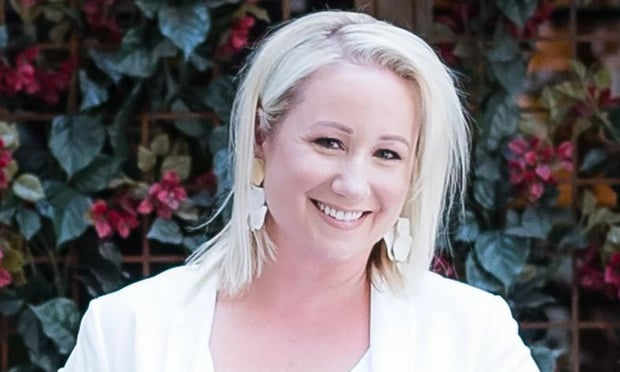Then and Now: Law Firm Management Challenges Before, After Quarantine
Challenges facing us in 2019, while seemingly very distant, deserve attention in addition to the new obstacles our firms face during what may be a temporary flattening of the COVID-19 curve.
June 25, 2020 at 10:07 AM
7 minute read
 Jessica L. Mazzeo of Griesing Law
Jessica L. Mazzeo of Griesing Law
It's been more than 15 weeks since COVID-19 hit pause on what seems like the entire world. When firms were in the thick of it, dealing with government-mandated office closures, I wrote an article about how law firms could navigate the delicacies that came with the global pandemic. In March, we were paralyzed as we began quarantined life only to be shocked to our cores in late May as our nation became embroiled in social unrest due to continued systemic racism that can no longer be tolerated. Fast forward to now as the country begins to slowly reemerge from quarantine and reevaluate our fundamental values and beliefs that got us to where we are today. Law firms and other businesses alike are defining what will become our new normal. Challenges facing us in 2019, while seemingly very distant, deserve attention in addition to the new obstacles our firms face during what may be a temporary flattening of the COVID-19 curve. Here are four areas that law firms must continue to address to remain on the right side of 2020:
Reopening of Office Space and Managing Client Expectations
As an update to my last article that outlined the various stringent requirements firms have to implement for a safe return to work, there are a few other issues that firms should now consider as well. Many firms around the country jumped at their first opportunities to have offices reopen and become fully staffed. At Griesing Law, we are taking a different approach. The health and well-being of our entire team and their families is our number-one priority. Yes, we are fortunate that pre-COVID-19, most of our team was already enabled with the tools for remote work. When the forced closures hit, we had very minor hiccups in getting those last few team members onboarded with the right tools to work remotely. Today, even though the closure order has been lifted, we continue to be fully remote. It's critical for us as a firm to support our team while still supporting our clients and communities. For us, client service has not waivered regardless of the location of our team. As client customer service issues in recent years have caused many clients to jump ship from their firms, it's important for law firms now to continue to strive to meet client demands despite office disruptions.
Reevaluating Budgets and Partner Compensation
If COVID-19 has taught us anything, it is how to better tighten our purse strings. Budget issues are facing businesses around the country and law firms are no different. From across the board pay cuts to permanent furloughs, law firms have been scrambling to stop the siphon of cash flow at a time when many clients are struggling to pay bills, let alone unwanted legal expenses. With continued budget cuts expected, many firms will also be continuing layoffs. While removing the livelihood of any individual is never something management looks forward to, the coronavirus has shown law firms many things—including that it is possible to be lean in some departments while stilling running efficiently. But I would be remiss to not discuss another area where firms can trim budgets to avoid significant layoffs that could overextend remaining staff: partner compensation—a topic floating around before the pandemic. Small businesses and corporations alike are no longer willing to pay excessive hourly rates especially when the customer service often doesn't match the value paid. In addition, almost every client regardless of size wants to feel the value for every dollar they are spending and no more so than in a pandemic that has affected every person and business around the globe. While high hourly rates for your top partner or associate may not be leaving law firms just yet, a reevaluation of partner compensation must take place. The rise and elevation of a few at the expense of many hardworking subordinates should no longer be tolerated. Those firms who may feel that permanent adjustments to partner compensation are the last avenue to take are presumably more likely to also have law firm cultures with wide-ranging internal competition and discord among colleagues—environments that often exclude women and minorities from rising to the top.
Law Firm Culture
And speaking of law firm culture, the topic couldn't be any more relevant today than before. Cultural issues facing law firms were around long before a global pandemic but with the social uprising across America only getting stronger each day, it's more important than ever that firms act—and act now. We already know that clients are taking their business elsewhere when firms are not diverse and inclusive. We also know that some corporate clients could be pulling work from longstanding outside counsel based on their responses to the pandemic (recall my "optics of the pay cut" section in my last article). Firms need to take swift action by not just standing behind a carefully curated statement that on its face shows an inclusive and equitable culture for all. Firms instead must reassess hiring practices and annual reviews, create diversity policies and actually follow them, provide educational content year round and implement and enforce disciplinary policies for those who violate these policies. As more and more Generation Z (the least tolerant generation of inequality) begin to enter our workforces, employers must realize that a zero tolerance policy on systemic issues like gender equity, pay gaps and institutional racism are essential. For any naysayers, simply look out your window.
Succession Planning and Thinking Ahead
Many lawyers spend their careers building huge books of business, amassing fortunes and notoriety along the way. But, what good is all that success if there is no one to pass the torch and carry the legacy on? COVID-19 has illuminated what is really important for many people, causing reevaluations of priorities and what now belongs in the back seat. As we emerge from this pandemic, it is a good time to assess our succession planning. Does your firm, or do you individually if you run a solo practice, have plans in place to pass that torch? If not, consider implementing now sponsor programs to build up junior associates to take over or create a networking group of others outside your firm who you can refer your clients when you do decide it's time to put down the legal books.
A few weeks ago when I was in the office checking the mail (I made the decision early on that I would volunteer to check the mail so that other team members would not have the burden of traveling to our office during quarantine), I received a card in the mail from a vendor. The front read: Plant the Seeds for a Brighter Future. Along with a little packet of seeds inside, the card read in part "it is more important than ever that we show gratitude for all we have … we will get through this together and together we will create a brighter future for all." We all continue to navigate unchartered waters and, as management, our actions now are planting seeds for future generations in the legal industry and beyond. Let's all do our part to get it right.
Jessica L. Mazzeo is Chief Operating Officer of Griesing Law, LLC, where she focuses on overseeing and implementing all of the Firm's business operations while establishing policies that promote and retain the Firm's culture and strategic vision. In addition to her role at the Firm, Jessica is Chair of the Committee on Diversity and Inclusion of the Association of Legal Administrators. She is also a volunteer for the National Association of Minority and Women Owned Law Firms and the Women's Business Enterprise Center East. Jessica is currently pursuing her law degree at Widener University Delaware School of Law. You can reach Jessica at (215) 732-3922 or [email protected].
This content has been archived. It is available through our partners, LexisNexis® and Bloomberg Law.
To view this content, please continue to their sites.
Not a Lexis Subscriber?
Subscribe Now
Not a Bloomberg Law Subscriber?
Subscribe Now
NOT FOR REPRINT
© 2025 ALM Global, LLC, All Rights Reserved. Request academic re-use from www.copyright.com. All other uses, submit a request to [email protected]. For more information visit Asset & Logo Licensing.
You Might Like
View All


Law Firms Mentioned
Trending Stories
- 1Navigating AI Risks: Best Practices for Compliance and Security
- 220 New Judges? Connecticut Could Get Wave of Jurists
- 3Orrick Loses 10-Lawyer Team to Herbert Smith in Germany
- 4‘The US Market Is Critical’: KPMG’s Former Head of Global Legal Services On the Legal Arm of the Big Four Firm Entering the US
- 5Justice Marguerite Grays Elevated to Co-Chair Panel That Advises on Commercial Division
Who Got The Work
J. Brugh Lower of Gibbons has entered an appearance for industrial equipment supplier Devco Corporation in a pending trademark infringement lawsuit. The suit, accusing the defendant of selling knock-off Graco products, was filed Dec. 18 in New Jersey District Court by Rivkin Radler on behalf of Graco Inc. and Graco Minnesota. The case, assigned to U.S. District Judge Zahid N. Quraishi, is 3:24-cv-11294, Graco Inc. et al v. Devco Corporation.
Who Got The Work
Rebecca Maller-Stein and Kent A. Yalowitz of Arnold & Porter Kaye Scholer have entered their appearances for Hanaco Venture Capital and its executives, Lior Prosor and David Frankel, in a pending securities lawsuit. The action, filed on Dec. 24 in New York Southern District Court by Zell, Aron & Co. on behalf of Goldeneye Advisors, accuses the defendants of negligently and fraudulently managing the plaintiff's $1 million investment. The case, assigned to U.S. District Judge Vernon S. Broderick, is 1:24-cv-09918, Goldeneye Advisors, LLC v. Hanaco Venture Capital, Ltd. et al.
Who Got The Work
Attorneys from A&O Shearman has stepped in as defense counsel for Toronto-Dominion Bank and other defendants in a pending securities class action. The suit, filed Dec. 11 in New York Southern District Court by Bleichmar Fonti & Auld, accuses the defendants of concealing the bank's 'pervasive' deficiencies in regards to its compliance with the Bank Secrecy Act and the quality of its anti-money laundering controls. The case, assigned to U.S. District Judge Arun Subramanian, is 1:24-cv-09445, Gonzalez v. The Toronto-Dominion Bank et al.
Who Got The Work
Crown Castle International, a Pennsylvania company providing shared communications infrastructure, has turned to Luke D. Wolf of Gordon Rees Scully Mansukhani to fend off a pending breach-of-contract lawsuit. The court action, filed Nov. 25 in Michigan Eastern District Court by Hooper Hathaway PC on behalf of The Town Residences LLC, accuses Crown Castle of failing to transfer approximately $30,000 in utility payments from T-Mobile in breach of a roof-top lease and assignment agreement. The case, assigned to U.S. District Judge Susan K. Declercq, is 2:24-cv-13131, The Town Residences LLC v. T-Mobile US, Inc. et al.
Who Got The Work
Wilfred P. Coronato and Daniel M. Schwartz of McCarter & English have stepped in as defense counsel to Electrolux Home Products Inc. in a pending product liability lawsuit. The court action, filed Nov. 26 in New York Eastern District Court by Poulos Lopiccolo PC and Nagel Rice LLP on behalf of David Stern, alleges that the defendant's refrigerators’ drawers and shelving repeatedly break and fall apart within months after purchase. The case, assigned to U.S. District Judge Joan M. Azrack, is 2:24-cv-08204, Stern v. Electrolux Home Products, Inc.
Featured Firms
Law Offices of Gary Martin Hays & Associates, P.C.
(470) 294-1674
Law Offices of Mark E. Salomone
(857) 444-6468
Smith & Hassler
(713) 739-1250






